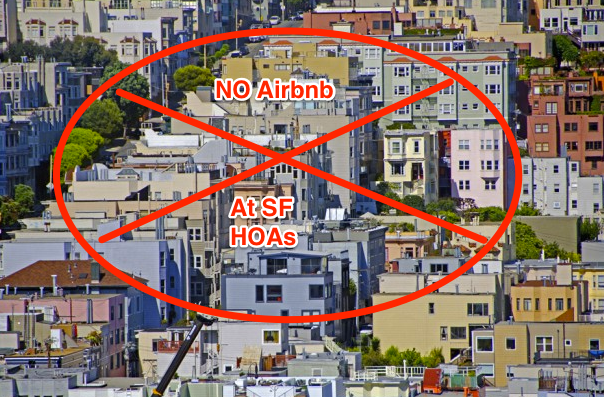By: SwedelsonGottlieb, Community Association Attorneys

On October 7, 2014, the San Francisco Board of Supervisors voted to legalize the use of residences in San Francisco for short-term vacation rentals, by passing what has been dubbed as the San Francisco “Airbnb law”. Follow this link to a news article. This new law has been more than two years in the making, and removes San Francisco’s long-standing ban on residential rentals of less than 30 days. The new legislation, integrated into the San Francisco Administrative Code, now allows short-term rentals of homes, imposes certain restrictions and requirements on that controversial and unregulated practice, and will take effect in February of 2015.
The stated goal of the legislation is to balance the preservation of affordable housing (by making sure landlords can’t convert permanent units to more lucrative vacation rentals) with allowing residents to earn extra income by renting to travelers for short-term vacation and business purposes. The Airbnb law allows only permanent residents to offer their homes for short-term rentals, establishes a new city registry for hosts, mandates the collection of hotel tax, limits entire-home rentals to 90 days per year, requires each short-term rental listing to carry $500,000 in liability insurance, and establishes guidelines for enforcement by the San Francisco Planning Department.
Housing advocates, landlords, neighborhood associations, and labor groups have actively opposed San Francisco’s Airbnb law, voicing concerns that vacation rentals were raising San Francisco housing prices, threatening security and access control within San Francisco properties, and interfering with the residential character of San Francisco neighborhoods. The attorneys in our office have been particularly concerned about the impact that prior incarnations of the Airbnb law would have on community associations in San Francisco. In fact, SwedelsonGottlieb’s managing partner, Sandra Gottlieb, recently spoke with David Chiu, President of the San Francisco Board of Supervisors, about creating successful communities in San Francisco.
Fortunately, the adopted Airbnb law does NOT control over a community association’s governing documents. Paragraph (6) of subsection (g) of Section 41A.5 of Chapter 41A of the San Francisco Administrative Code provides that the new short-term rental exemption “does not confer a right to lease, sublease, or otherwise offer a residential unit for Short-Term Residential Use where such use is not otherwise allowed by law, a homeowners association agreement or requirements, any applicable covenant, condition, and restriction, a rental agreement, or any other restriction, requirement, or enforceable agreement.” (emphasis added)
The rental and leasing restrictions contained in an association’s CC&Rs, including a requirement that minimum lease terms be greater than 30 days, or any express prohibition on short term rentals should control over the Airbnb law. This means that an association in San Francisco will still be able to enforce existing leasing provisions, as well as adopt amendments that establish minimum lease terms of six months or one year (or some other reasonable length).
As we expect other cities and perhaps even the State of California to adopt similar laws, the board of directors of every California condominium, stock cooperative or homeowner association that is concerned that owners may start to rent out their units or homes to strangers who will be coming and going and partying at their associations should review their CC&Rs or other governing documents to see if they contain restrictions on short-term rentals. If in doubt or if the board wants to amend the governing documents to beef up or add such restrictions, the board should contact the association’s legal counsel.
SwedelsonGottlieb is a law firm that represents California community association. The firm can be contacted via email: an@sghoalaw.com
 HOA Law Blog
HOA Law Blog


